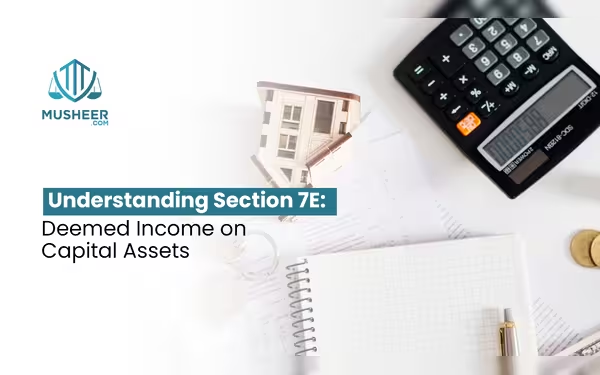Thursday, July 4, 2024 06:04 PM
Tax Experts Debate Section 7E Implications
- Section 7E distinguishes 'deemed' income from actual economic transactions.
- Debate questions validity of deeming notional values as taxable income.
- Discussion focuses on aligning tax laws with economic realities for fairness.
 Image Credits: Musheer.com
Image Credits: Musheer.comThe ongoing debate over Section 7E of the Income Tax Ordinance, 1979 delves into the interpretation of 'deemed' income and its application in scenarios without economic transactions. This discussion highlights the need for clarity and reason in tax legislation to ensure fairness in determining taxable income.
The ongoing debate surrounding the tax implications of Section 7E of the Income Tax Ordinance, 1979 has sparked discussions on the interpretation of 'deemed' income and its application in different scenarios. The recent comparison drawn between the Elahi Cotton Mills Limited case and the current matter under consideration highlights a crucial distinction - the absence of an 'Economic Transaction' or 'event' in Section 7E.
In the Elahi Cotton Mills Limited case, the taxed amount was a result of actual economic transactions undertaken by the taxpayer during the tax year. However, Section 7E deals with scenarios where no such economic activity takes place, such as the mere ownership of an asset. This distinction raises questions about the validity of deeming notional values as taxable income.
An economic transaction involves the exchange of economic value between parties, leading to income generation. In contrast, ownership of an asset, like a property inherited over generations, does not constitute an income-generating transaction until a sale occurs. The debate centers on whether Section 7E can be applied to such scenarios where no economic activity triggers the deemed income provision.
The crux of the matter lies in determining whether the provisions of Section 7E align with the concept of taxing income derived from economic transactions. The argument against the application of Section 7E to scenarios like property ownership without economic activity emphasizes the need for clarity and reason in tax legislation.
In conclusion, the debate over Section 7E underscores the importance of aligning tax laws with economic realities to ensure fairness and reasonableness in determining taxable income.













